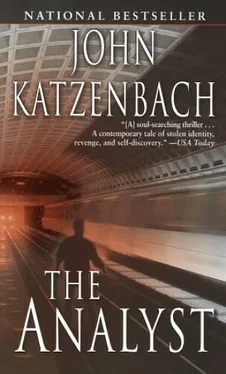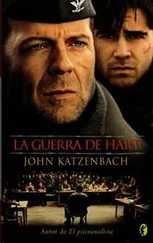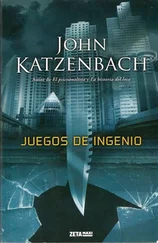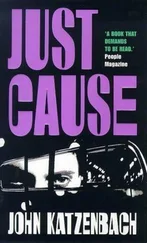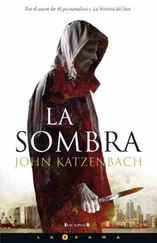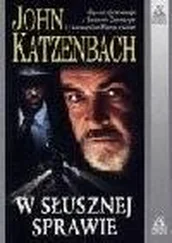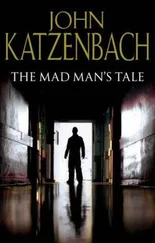At a sporting goods store he bought a small, black backpack of the type favored by students for carrying books. He also purchased the cheapest back-pocket wallet the store had to offer and a midrange pair of running shoes. These purchases he made with as little conversation as possible with the clerk, avoiding eye contact, not behaving furtively, because that might have drawn attention, but making decisions efficiently, so that his presence in the store was as routine and unnoticeable as possible.
From this store, he went to another large chain drugstore where he acquired some Grecian 5 5-Minute Haircolor in black, a pair of cheap sunglasses, and a set of adjustable aluminum crutches, not the sort that extended up under the armpit, favored by injured athletes, but the type utilized by long-term users, people crippled by some disease or another, where the handle and the semicircular brace formed a sleeve for the hand and forearm.
He had one other stop in Provincetown, at the Bonanza bus terminal, a small roadside office with a single counter, three chairs to wait in and a blacktop parking area big enough for two or three buses. He waited outside, wearing the sunglasses, until a bus arrived, depositing a flock of weekend visitors, before walking in and making his purchase rapidly.
In the Honda, heading toward his home, he thought he barely had enough time left that day. Sunlight filled the windshield, heat poured in through the open side windows. It was the point of the summer afternoon when people gathered themselves off of the sand, called for the children to get out of the surf, collected towels and coolers and brightly colored plastic buckets and shovels, and began the slightly uncomfortable trek back to their vehicles-a moment of transition, before the nighttime routine of dinner and a movie, or a party, or a quiet time spent with some dog-eared paperback novel took over. It was time that Ricky, in years past, would have luxuriated in a warm shower, and then spent with his wife just talking over ordinary things in their lives. Some particularly difficult stage with a patient, for him, a client who couldn’t turn his life around for her. Little moments that filled days, and became simple yet fascinating in the scheme of living quietly together. He remembered these times, wondered a bit why he had not thought of them in the years since her death. Remembering did not make him sad, as it so often does to recall missing partners, but actually comforted him. He smiled, because, he thought, for the first time in months, he could recall the sound of her voice. For a moment he wondered whether she thought of the same things, not the big and extraordinary moments of living, but the easy, little times that bordered on the routine, and were so speedily forgotten, when she was preparing herself for death. He shook his head. He guessed that she had tried, but that the pain of the cancer was too great, and when masked by morphine, these memories would be lost to her, which was a realization that Ricky regretted.
My dying seems different, he told himself.
Far different.
He pulled into a Texaco station and stopped at the row of pumps. He stepped from the Honda and took the pair of gas tanks out of the trunk, then proceeded to fill them up to the brim with regular fuel. A teenage boy, working at the full-serve section, saw him, and called out, “Hey, mister, you want to be leaving enough room for oil, if those are going into an outboard. Some take a mix of fifty to one, others, a hundred to one, but you gotta put it right in the tank…”
Ricky shook his head. “Not for an outboard, thanks.”
The teenager persisted. “They’re outboard tanks.”
“Yeah,” Ricky said. “But I don’t own an outboard.”
The boy shrugged. He was probably year-round, Ricky thought, a local high school kid who couldn’t imagine another use for the tanks other than what they were designed for, and who immediately put Ricky into the category that the Cape residents had for summer people, which was a status of mild contempt and utter persuasion that no one from New York or Boston had even the slightest idea what they were doing at any time whatsoever. Ricky paid, replaced the now filled tanks in the trunk of the car, an act even he understood to be remarkably dangerous, and set out for his home.
He set the two gasoline canisters down temporarily in the living room, and returned to the kitchen. He felt suddenly parched, as if he’d exerted a great deal of energy, and he found a bottle of spring water in the refrigerator which he gulped at rapidly. His heart seemed to have picked up pace, as the hours of this last day dwindled, and he told himself to remain calm.
Spreading the envelopes and the pad of paper out on the kitchen table, Ricky sat down, fingered one of the ballpoint pens, and wrote the following short note:
To the Nature Conservancy:
Please accept the enclosed donation. Do not seek more, because I have no more to give, and after tonight, will not be here to give it.
Sincerely yours,
Frederick Starks,M.D.
He then took a hundred-dollar bill from his stash and sealed it and the letter into one of the stamped envelopes.
Ricky then wrote similar notes and enclosed a similar amount in all the other stamped envelopes, save one. He made donations to the American Cancer Society, The Sierra Club, The Coastal Conservation Association, CARE, and the Democratic National Committee. In each case, he simply wrote the name of the organization on the outside of the envelope.
When he had finished, he looked at his wristwatch and saw that he was nearing the Times ’s evening deadline. He went to the phone and called the advertising department as he had on three other occasions.
This time, however, the message for the ad that he gave the clerk was different. No rhymes, no poems, no questions. Just the simple statement:
Mr. R.: You win. Check the Cape Cod Times.
Once that was accomplished, Ricky returned to his seat at the kitchen table and took the writing pad in hand. He chewed on the end of the pen for a moment, while he composed a final letter. Then he wrote rapidly:
To whom it may concern:
I did this because I was alone, and hate the emptiness in my life. I simply could not tolerate causing any further harm to any other person. I have been accused of things I am innocent of. But am guilty of mistakes toward the people I loved, and that has brought me to this point to take this step. If someone would mail the various contributions I have left behind, I would appreciate it. All property and funds remaining in my estate should be sold and the proceeds turned over to these same charities. What is left of my home here in Wellfleet should become conservation land. To my friends, if any, I hope you will forgive me. To my patients, I hope you will understand. And Mr. R., who helped bring me to this stage, I hope you will find your own way to Hell soon enough, because I will be waiting there for you.
He signed this letter with a flourish, sealed it in the last remaining envelope and addressed it to the Wellfleet Police Department.
Taking the hair color and his backpack in hand, he went to the upstairs shower. Ricky followed the directions for the dyeing agent, and emerged from the bathroom in moments with nearly jet-black hair. He stole a quick glance at his appearance in the mirror, thought it mildly foolish, then toweled himself dry. At his bureau, he selected some of the old and worn summer clothes he stored there, and stuffed them, along with a frayed windbreaker, into the backpack. He kept an additional change of clothes out, folded carefully and placed on top of the pack. Then he dressed back in the clothing he had worn that day. In an outside pocket of the pack, he slid the photograph of his dead wife. In another pocket he stuffed the latest message from Rumplestiltskin and the few remaining documents he had in his possession that detailed what had happened to him. The documents about the mother’s death.
Читать дальше
